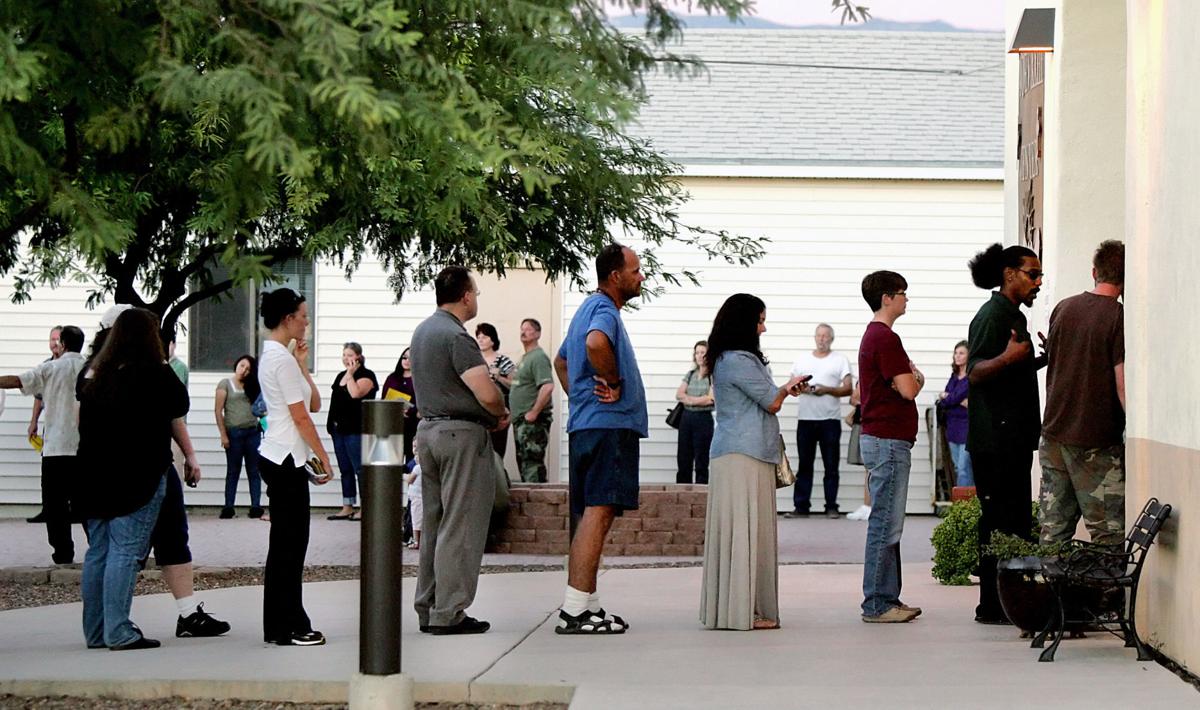PHOENIX — An attorney for the Arizona Democratic Party told a federal judge Thursday if he does not restrain actions by the Republican Party and supporters of Donald Trump he will be “inviting chaos on election day.”
Michael Gottlieb detailed for Judge John Tuchi a series of statements by Trump that he said are essentially exhortations to the candidate’s supporters to interfere with the rights of voters. And Gottlieb said the state Republican Party is engaged in similar efforts.
“The defendants are engaged in a concerted efforts to coerce and harass voters,” he told the judge, actions that are illegal under the federal Voting Rights Act. And Gottlieb told Tuchi he needs to do little more than consider the actions of the GOP’s presidential contender.
“Mr. Trump has been on the campaign trail ... making statements about the manner in which this election is being conducted and what his supporters should do about that,” Gottlieb said.
He conceded that Trump has not explicitly told backers what they should do, telling them only they should “watch” what happens at the polls. Gottlieb said, though, that Trump is telling supporters to challenge people they believe may not be entitled to vote.
“When I say ‘watch,’ you know what I’m talking about, right?” Gottlieb quoted Trump as saying at an Ohio rally. And he said Trump’s statements that his followers need to watch out for voting by people not in this country legally suggests they will be targeting polling places in minority neighborhoods.
He said what Trump proposes “essentially deputizes vigilantes at the polls.”
Gottlieb said the situation is exacerbated by statements by Robert Graham, chairman of the Arizona Republican Party, and Tim Sifert, the party’s publicist, saying that anyone who sees what they believe is a violation of law — particularly turning in multiple ballots — should ask questions and, if appropriate, follow people to their vehicles and take pictures of individuals and their license plates.
He wants Tuchi to issue an order blocking individuals from “questioning, interrogating, or verbally harassing voters or prospective voters.” He also wants a ban on “following, taking photos of, or otherwise recording voters or prospective voters.”
But Kory Langhofer, representing the Trump campaign, told Tuchi he has no basis to issue an injunction.
He said what the Democrats want is an order restraining the actions of individuals who have taken it on themselves to keep an eye on what is happening at the polls. Langhofer said Tuchi cannot issue any blanket prohibition on what those individuals can do, especially those who remain outside the 75-foot limit in which certain activities are prohibited.
The judge said, though, that Trump’s statements could be seen as telling people to show up at polling places, especially in minority areas, and engage in illegal actions that could interfere with the right to vote.
But even then, Langhofer said that does not violate the Voting Rights Act unless there is proof that the activity is targeting people based on their race, proof he said does not exist.
Gottlieb said there is no requirement to show people are targeted on the basis of race.
Tim LaSota, attorney for the state GOP, urged the judge not to issue any injunction against his client. He said the party does not encourage observers to challenge voters or intimidate them and said the GOP cannot be held responsible if “some goofball shows up and causes trouble.”
The Democrats have significant legal hurdles to get the injunction.
First is the question of how the judge can issue an order to block harassment and intimidation without interfering with individual rights.
For example, Tuchi said while Arizona law restricts what can occur inside the polling place and within 75 feet, there are no limits beyond that.
And there’s something else: To get an injunction, there has to be some proof that someone is likely to break the law unless restrained.
Tuchi said that can be done by showing similar activity in the past. But even Gottlieb admitted there is no such proof.





